Inger Andersen, Executive Director, United Nations Environment Programme

01 Feb 2024
This year, World Wetlands Day reminds us that our health is dependent on the health of wetlands, because wetlands are these great wonders of nature, perfectly balanced systems that perform absolutely vital functions for us and for nature.
They store water during times of drought, absorb water during floods, filter pollutants and they help to provide clean drinking water and water for crops.
But the truth is that we’re living in a time of water degradation and growing water stress. Hence, delivering nature-based solutions that protect and restore and sustainably manage wetlands is more important than ever.
And that, of course, includes solutions for coastal wetlands, because we have to remember that not all wetlands are freshwater, and it also includes restoring urban wetlands to help those of us who live in cities adapt to climate change and to protect us against inundations and growing wildfires even in the urban setting, water and wetland management is increasingly being recognized as key to achieving international commitments.
For example, the Freshwater Challenge that was launched at the UN 2023 Water Conference under the umbrella of the UN Decade for Ecosystem Restoration. Here we saw 44 Member Stared step up and promise to protect and restore 300,000 kilometres of degraded rivers and 350 million hectares of degraded wetlands by 2030.
And water has been signalled as a strong priority for the sixth UN Environment Assembly, which is scheduled to take place in Nairobi, Kenya. We need to build on this recognition with firmer action, finance for nature-based solutions that back wetlands is still weak, which is why UNEP is providing data that will allow targeted and well-funded interventions.
One such example is a collaboration between UNEP and tech companies to map global wetlands with satellite imagery and using AI.
On World Wetlands Day, I call on more nations to join the Fresh Water Challenge, and I call on funding bodies, including the private sector, to step up, to back nature-based solutions for wetlands.
Because the truth is that our wellbeing depends on these amazing, vital and absolutely phenomenal systems. Go to a wetland and you will see and experience things that cannot just be put into words.
And so, we need to restore these wetlands and ensure that we return them to full health.


